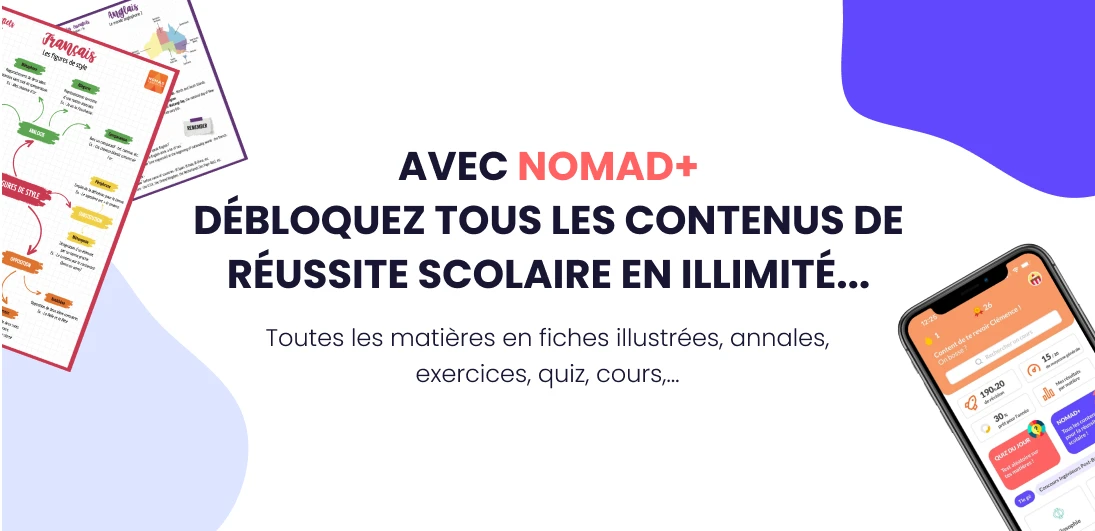Innovations scientifiques et responsabilité
📝 Mini-cours GRATUIT
Vocabulary
🍀 Fiches de révision PREMIUM
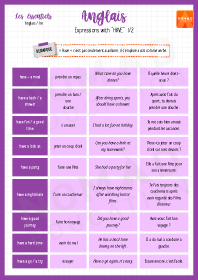
Expressions with HAVE
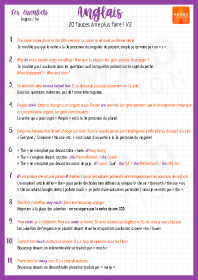
20 fautes à ne plus faire
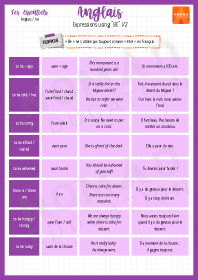
Expressions using BE
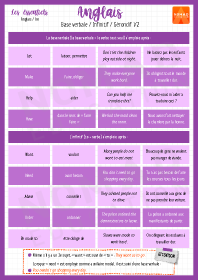
Base verbale – Infinitif – Gérondif
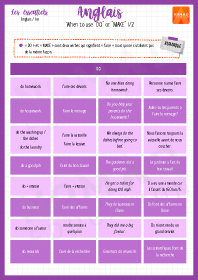
When to use DO or MAKE
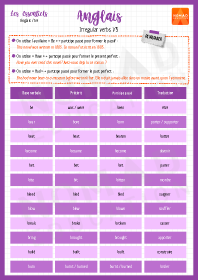
Verbes irréguliers
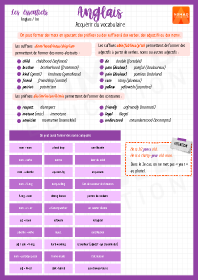
Acquérir du vocabulaire
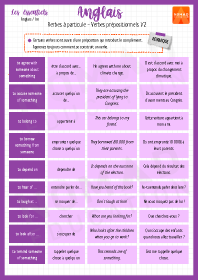
Verbes à particule – Verbes prépositionnels
